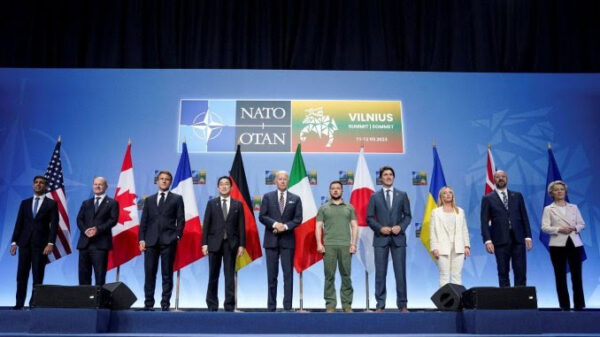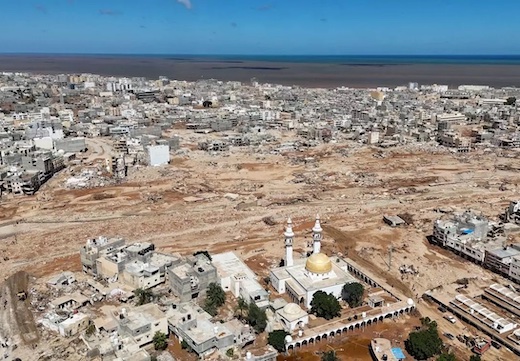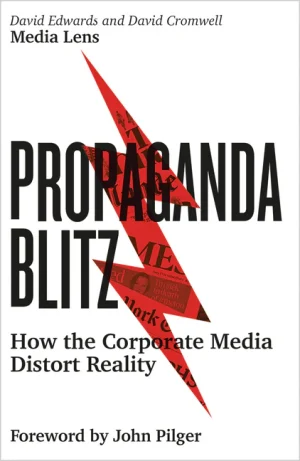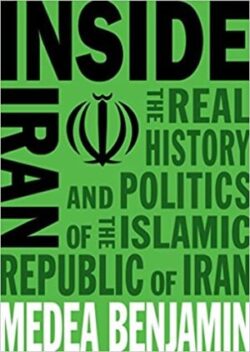A key function of state-corporate media is to keep the public pacified, ignorant and ill-equipped to disrupt establishment power.
Knowledge that sheds light on how the world operates politically and economically is kept to a minimum by the ‘mainstream’ media. George Orwell’s famous ‘memory hole’ from ‘Nineteen Eighty-Four’ signifies the phenomenon brilliantly. Winston Smith’s work for the Ministry of Truth requires that he destroys documents that contradict state propaganda:
When one knew that any document was due for destruction, or even when one saw a scrap of waste paper lying about, it was an automatic action to lift the flap of the nearest memory hole and drop it in, whereupon it would be whirled away on a current of warm air to the enormous furnaces which were hidden somewhere in the recesses of the building.
— Orwell, Nineteen Eighty-Four, 1949, Penguin edition, 1982, p. 34
The interests of power, hinging on the domination of an ignorant population, are robustly maintained:
In this way every prediction made by the Party could be shown by documentary evidence to have been correct, nor was any item of news, or any expression of opinion, which conflicted with the needs of the moment, ever allowed to remain on record. All history was a palimpsest, scraped clean and reinscribed exactly as often as was necessary. In no case would it have been possible, once the deed was done, to prove that any falsification had taken place.
— Ibid., p. 36
As the Party slogan puts it:
Who controls the past, controls the future: who controls the present controls the past.
— Ibid., p. 31
In today’s fictional ‘democracies’, the workings of propaganda are more subtle. Notably, there is a yawning chasm between the rhetoric of leaders’ professed concern for human rights, peace and democracy, and the realpolitik of empire, exploitation and control.
As Declassified UK observed earlier this year, the UK has planned or executed over 40 attempts to remove foreign governments in 27 countries since the end of the Second World War. These have involved the intelligence agencies, covert and overt military interventions and assassinations. The British-led coup in Iran 70 years ago is perhaps the best-known example; but it was no anomaly.
If we broaden the scope to British military interventions around the world since 1945, there are as many as 83 examples. These range from brutal colonial wars and covert operations to efforts to prop up favoured governments or to deter civil unrest, including British Guiana (now Guyana) in 1953, Egypt in the 1950s, Iraq in 2003 and Libya in 2011 (more on this below).
The criminal history of the US in terms of overthrowing foreign governments, or attempting to do so, was thoroughly documented by William Blum, author of Killing Hope: US Military and CIA Interventions since World War II and Rogue State: A Guide to the World’s Only Superpower.
These multiple invasions, coups and wars are routinely sold to the public as ‘humanitarian interventions’ by Western leaders and their propaganda allies of the ‘mainstream’ media.
A Feted War Criminal
Tony Blair, the arch British war criminal, is largely treated by the UK political and media classes as a wise elder statesman on domestic and world affairs. It sums up the way this country is run by a corrupt and blood-soaked establishment. Proving the point, the Financial Times recently tweeted:
Sir Tony Blair is back. Once vilified as a “war criminal” by some in Labour, his influence within the party is growing again under Sir Keir Starmer. The FT speaks to the former UK premier: https://on.ft.com/3PDkIpE
You’ve got to love the FT’s insistence on using ‘Sir’, as though that bestows some measure of respectability on a man who waged devastating wars of first resort in Iraq and Afghanistan. The Costs of War project, based at Brown University in Providence, Rhode Island, estimates that the total death toll in post-9/11 wars – including Afghanistan, Pakistan, Iraq, Syria and Yemen – could be at least 4.5-4.7 million. Blair is one of the Western leaders who shares complicity for this appalling death toll. That fact has been essentially thrown down the memory hole by propaganda outlets who welcome him with open arms.
Former NATO Supreme Allied Commander Wesley Clark once explained how, following the 9/11 attacks, the US planned to ‘take out’ seven countries in five years: Iraq, Syria, Lebanon, Libya, Somalia, Sudan and Iran. It is remarkable that this testimony, and compelling footage, has never been deemed credible evidence by ‘mainstream’ media.
The notion that Blair was ‘once vilified’ as a war criminal – and let’s drop those quotation marks around ‘war criminal’ – as though that is no longer the case is ludicrous. In any case, what does the carefully selected word ‘vilify’ actually mean? According to the online Merriam-Webster dictionary, it can mean two things:
- 1: to utter slanderous and abusive statements against: defame;
- 2: to lower in estimation or importance.
The FT would presumably like to implant in readers’ minds the idea that Blair has been unjustly accused of being a war criminal; that the suggestion is a slander. But Blair, along with Bush and the Cheney gang, was one of the chief accomplices behind the mass terrorist attack on Iraq in 2003. It was the ‘supreme international crime’, judged by the standards of the Nuremberg trials held after the Second World War.
The accompanying FT photograph of a supposedly statesman-like ‘Sir’ Tony Blair was overlaid with a telling quote:
[Britain’s] a country that is in a mess. We are not in good shape.
Unmentioned is that Blair had a large part to play in creating today’s mess in Britain. Other than his great crimes in foreign affairs, he is an ardent supporter of the destructive economic system blandly titled ‘neoliberalism’. He continued along the path laid down by Tory leader Margaret Thatcher in the 1980s. Indeed, when Thatcher was once asked what she regarded as her greatest achievement, she replied: ‘Tony Blair and New Labour’.
As for Blair, he has described Thatcher in glowing terms as ‘a towering political figure’ whose legacy will be felt worldwide. He added:
I always thought my job was to build on some of the things she had done rather than reverse them.
The current Labour leader, Sir Keir Starmer – another ‘Sir’ and stalwart of the establishment – is unashamedly casting himself as a Blairite figure. They have even appeared in public together to ‘bask in each other’s reflected glory’, as one political sketch writer noted.
Jonathan Cook observed of Blair:
It says everything that Sir Keir Starmer, the UK’s former director of public prosecutions, is actively seeking to rehabilitate him.
That’s the same Starmer who helped smear his leftwing predecessor, Jeremy Corbyn.
The ‘Unprovoked’ Invasion of Ukraine
The mass-media memory hole is proving invaluable in protecting the public from uncomfortable truths about Ukraine. Western leaders’ expression of concern for Ukraine is cover for their desire to see Russian leader Vladimir Putin removed from power and Russia ‘weakened’, as US Secretary of Defence Lloyd Austin admitted earlier this year. Austin was previously a board member of Raytheon Technologies, a military contractor, stepping down with a cool sum of $2.7 million to join the Biden administration: yet another example of the ‘revolving door’ between government and the ‘defence’ sector.
Australian political analyst Caitlin Johnstone noted recently that:
Arguably the single most egregious display of war propaganda in the 21st century occurred last year, when the entire western political/media class began uniformly bleating the word “unprovoked” in reference to Russia’s invasion of Ukraine.
Pointing out that the West ‘provoked’ Russia is not the same as saying that the Russian invasion of Ukraine was justified. In fact, we were clear in our first media alert following the invasion:
Russia’s attack is a textbook example of “the supreme crime”, the waging of a war of aggression.
As Noam Chomsky pointed out, the 2003 invasion of Iraq was totally unprovoked, but:
nobody ever called it “the unprovoked invasion of Iraq.” In fact, I don’t know if the term was ever used; if it was, it was very marginal. Now you look it up on Google, and hundreds of thousands of hits. Every article that comes out has to talk about the unprovoked invasion of Ukraine. Why? Because they know perfectly well it was provoked. That doesn’t justify it, but it was massively provoked.’
Bryce Greene, a media analyst with US-based Fairness and Accuracy In Reporting (FAIR), observed that US policy makers regarded a war in Ukraine as a desirable objective:
One 2019 study from the RAND Corporation—a think tank with close ties to the Pentagon—suggested that an effective way to overextend and unbalance Russia would be to increase military support for Ukraine, arguing that this could lead to a Russian invasion.
The rationale was outlined in a Wall Street Journal opinion piece by John Deni of the Atlantic Council, a US think tank with close links to the White House and the arms industry, headlined “The Strategic Case for Risking War in Ukraine”. Greene summarised the logic:
Provoking a war would allow the US to impose sanctions and fight a proxy war that would grind Russia down. Additionally, the anti-Russian sentiment that resulted from a war would strengthen NATO’s resolve.
Greene added:
The consensus among policymakers in Washington is to push for endless conflict, no matter how many Ukrainians die in the process. As long as Russia loses men and material, the effect on Ukraine is irrelevant. Ukrainian victory was never the goal.
As Johnstone emphasised in her analysis:
It’s just a well–documented fact that the US and its allies provoked this war in a whole host of ways, from NATO expansion to backing regime change in Kyiv to playing along with aggressions against Donbass separatists to pouring weapons into Ukraine. There’s also an abundance of evidence that the US and its allies sabotaged a peace deal between Russia and Ukraine in the early weeks of the war in order to keep this conflict going as long as possible to hurt Russian interests.
She continued:
We know that western actions provoked the war in Ukraine because many western foreign policy experts spent years warning that western actions would provoke a war in Ukraine.
But you will search in vain for substantive reporting of such salient facts and relevant history – see also this piece by FAIR – in ‘mainstream’ news media.
A recent interview with the influential US economist and public policy analyst Jeffrey Sachs, former director of The Earth Institute at Columbia University, highlighted just how serious these media omissions are in trying to understand what is going on in Ukraine. In a superb 30-minute exposition, Sachs presented vital truths, not least that:
I think the defining feature of American foreign policy is arrogance. And they can’t listen. They cannot hear red lines of any other country. They don’t believe they exist. The only red lines are American red lines.
He was referring here to Russia’s red-line plea to the West not to continue expanding NATO right up to its borders; something, as mentioned above, Western foreign policy experts have been warning about for more than three decades. Would Washington ever allow a Russian sphere of influence to extend to US borders, with Mexico and Canada under the ‘evil spell’ of the Kremlin? Of course not.
Sachs added:
It’s pretty clear in early 2014 that regime change [in Ukraine] – and a typical kind of US covert regime change operation – was underway. And I say typical because scholarly studies have shown that, just during the Cold War period alone, there were 64 US covert regime change operations. It’s astounding.
What is also astounding, but entirely predictable, is that any such discussion is impermissible in ‘respectable’ circles.
Sachs described how the US reassured Ukraine after the Minsk II agreement in 2015, which was intended to bring peace to the Donbass region of Ukraine:
Don’t worry about a thing. We’ve got your back. You’re going to join NATO.
The role of Biden, then US Vice-President and now President, was to insist that:
Ukraine will be part of NATO. We will increase armaments [to Ukraine].
On 17 December 2021, Putin drafted a security agreement between Russia and the United States. Sachs read it and concluded that it was ‘absolutely negotiable’, adding:
Not everything is going to be accepted, but the core of this is NATO should stop the enlargement so we don’t have a war.
Sachs, who has long had high-level contacts within successive US administrations, then described an exchange he had over the telephone with the White House. ‘This war is avoidable’, he said. ‘Avoid this war, you don’t want a war on your watch.’
But the White House was emphatic it would give no commitment to stop enlargement. Instead:
No, no! NATO has an open-door policy [i.e. any country can supposedly join NATO.]
Sachs responded:
That’s a path to war and you know it. You’ve got to negotiate.
Click. The White House hung up.
Sachs told his interviewer:
These people do not understand anything about diplomacy. Anything about reality. Their own diplomats have been telling them for 30 years this is a path to war.
Sachs also related how Ukraine’s leader Volodymyr Zelensky was so taken aback when the Russian invasion began on 24 February 2022, that he started saying publicly, within just a few days, that Ukraine could be neutral; in other words, not join NATO. This was the essence of what Russia was seeking. But the Americans shut down that discussion, as Sachs went on to explain.
By March 2022, Ukrainian and Russian officials were holding negotiations in Turkey. Meanwhile, Naftali Bennett, who was then Israel’s Prime Minister, was making progress in mediating between Zelensky and Putin, as he described during a long interview on his YouTube channel. But, ultimately, the US blocked the peace efforts. Sachs paraphrased Bennett’s explanation as to why:
They [the US] wanted to look tough to China. They were worried that this could look weak to China.
Incredible! The US’s primary concern is to look strong to China, its chief rival in world affairs. This recalls the motivation behind the US dropping atomic bombs on Japan at the end of the Second World War as a show of might to the Soviet Union.
Infamously, Boris Johnson, then the British PM, travelled to Ukraine in April 2022, presumably under US directive, telling Zelensky not to negotiate with Russia.
If we had truly democratic, impartial news media, all these facts would be widespread across national news outlets. BBC News correspondents would continually remind viewers and listeners how the West provoked Russia, then blocked peace efforts. Instead, the memory hole is doing its job – inconvenient facts are disappeared -and we are bombarded with wall-to-wall propaganda about Russia’s ‘unprovoked’ invasion of Ukraine.
Libya: A Propaganda Masterclass
The memory-hole phenomenon is a huge factor in media coverage of Libya which, as we wrote last week, has suffered terribly in recent flooding and the collapse of two dams. The city of Derna was washed into the sea after 40cm of rain fell in twenty-four hours, leaving 20,000 people dead.
But vital recent history has been almost wholly buried by state-corporate media. In 2011, NATO’s attack on Libya essentially destroyed the state and killed an estimated 40,000 people. The nation, once one of Africa’s most advanced countries for health care and education, became a failed state, with the collapse of essential services, the re-emergence of slave markets and raging civil war.
The massive bombing, heavily involving the UK and France, had been enthusiastically championed (see our 2011 media alerts here and here) by Western politicians and state-corporate media, including BBC News, as a ‘humanitarian intervention’ to get rid of an ‘autocratic dictator’, Colonel Muammar Gaddafi.
The tipping point was the alleged threat of a massacre by Gaddafi’s forces in Benghazi. A senior government official serving under then Prime Minister, David Cameron, stated:
There was a very strong feeling at the top of this government that Benghazi could very easily become the Srebrenica of our watch. The generation that has lived through Bosnia is not going to be the “pull up the drawbridge” generation.
The reference was to the massacre of 8,000 Bosnian Muslims at Srebrenica in July 1995 by Bosnian Serb forces. The threat of something similar happening in Benghazi was a relentless theme across the airwaves and newspaper front pages. The Guardian, in line with the rest of the supposed ‘spectrum’ of British newspapers, promoted Cameron as a world-straddling statesman. The Arab Spring had ‘transformed the prime minister from a reluctant to a passionate interventionist.’ The paper dutifully helped his cause with sycophantic pieces such as the bizarrely titled, ‘David Cameron’s Libyan war: why the PM felt Gaddafi had to be stopped.’
In August 2011, serial Guardian propagandist Andrew Rawnsley responded to NATO’s overthrow of the Libyan government:
Libyans now have a chance to take the path of freedom, peace and prosperity, a chance they would have been denied were we to have walked on by when Muammar Gaddafi was planning his rivers of blood. Britain and her allies broadly got it right in Libya.
The BBC’s John Humphrys opined that victory had delivered ‘a sort of moral glow.’ (BBC Radio 4 Today, 21 October 2011)
There are myriad other examples from the Guardian and the rest of the ‘MSM’. The pathology of this propaganda blitz was starkly exposed by a 2016 report into the Libya war by the House of Commons Foreign Affairs Committee. The report summarised:
The result was political and economic collapse, inter-militia and inter-tribal warfare, humanitarian and migrant crises, widespread human rights violations, the spread of Gaddafi regime weapons across the region and the growth of ISIL in North Africa.
As for the alleged threat of a massacre by Gaddafi’s forces in Benghazi, the repeated rationale for the intervention, the report commented:
the proposition that Muammar Gaddafi would have ordered the massacre of civilians in Benghazi was not supported by the available evidence…Gaddafi’s 40-year record of appalling human rights abuses did not include large-scale attacks on Libyan civilians.’ (Our emphasis)
More on this, and the propaganda blitz that enabled NATO’s attack on Libya, can be found in our 2016 media alert, “The Great Libya War Fraud“.
Behind the rhetoric about removing a dictator was, of course, the underlying factor of oil; as it so often is in the West’s imperial wars. In 2011, Real News interviewed Kevin G. Hall, the national economics correspondent for McClatchy Newspapers, who had studied WikiLeaked material on Libya. Hall said:
As a matter of fact, we went through 251,000 [leaked] documents… Of those, a full 10 percent of them, a full 10 percent of those documents, reference in some way, shape, or form oil.’ (‘WikiLeaks reveals US wanted to keep Russia out of Libyan oil,’ The Real News, 11 May 2011)
Hall concluded:
It is all about oil.
In 2022, Declassified UK reported that:
British oil giants BP and Shell are returning to the oil-rich north African country just over a decade after the UK plunged it into chaos in its 2011 military intervention, which the British government never admitted was a war for oil.
There were additional ‘benefits’ to the West. As WikiLeaks co-founder Julian Assange explained in an interview with John Pilger, Hillary Clinton intended to exploit the removal of Gaddafi as part of her corporate-funded bid to become US president. Clinton was then US Secretary of State under President Barack Obama:
Libya’s war was, more than anyone else’s, Hillary Clinton’s war…who was the person who was championing it? Hillary Clinton. That’s documented throughout her emails [leaked emails published by WikiLeaks]’.
Assange added:
She perceived the removal of Gaddafi, and the overthrow of the Libyan state, something that she would use to run in the election for President.
You may recall Clinton’s gleeful response to the brutal murder of Gaddafi:
We came, we saw, he died.
Also, as Assange pointed out, the destruction of the Libyan state generated a catastrophe of terrorism and a refugee crisis, with many drowning in their attempts to cross the Mediterranean to Europe:
Jihadists moved in. ISIS moved in. That led to the European refugee and migrant crisis. Because, not only did you have people fleeing Libya, people then fleeing Syria, destabilisation of other African countries as the result of arms flows, the Libyan state itself was no longer able to control movement of people through it…. [Libya] had been effectively the cork in the bottle of Africa. So, all problems, economic problems, civil war in Africa – people previously fleeing those problems didn’t end up in Europe.
Very little of the above vital history and context to the recent catastrophic flooding in Libya is included in current ‘mainstream’ news reporting. At best, there is token mention. At worst, there is deeply deceitful and cynical rewriting of history.
A report on the Sky News website went about as far as is permissible in detailing the reality:
Libyans are worn down by years and years of poor governance many of which date back to 2011 and the NATO-backed ousting of the country’s autocratic dictator Colonel Muammar Gaddafi, during the period which became known as the Arab Spring.
Gaddafi was killed and the country dived into instability with rival armed militias vying for power and territory.
An article for the BBC News Africa section gave an even briefer hint of the awful truth:
Libya has been beset by chaos since forces backed by the West’s NATO military alliance overthrew long-serving ruler Col Muammar Gaddafi in October 2011.
This was the only mention in the article of Western responsibility for the disaster. The shameful propaganda censorship was highlighted when the article was posted by the BBC Africa Twitter/X account. So many readers pointed out the glaring omissions that a Twitter/X warning of sorts appeared under the BBC’s tweet:
Readers added context they thought people might want to know.
Then:
Due to NATO intervention in Libya, several problems such as the lack of a unified government, the re-emergence of slave markets and collapse of welfare services have made the country unable to cope with natural disasters.
If such ‘context’ – actually, vital missing information – were to regularly appear under BBC tweets because of reader intervention, it would be a considerable public service; and a major embarrassment for the self-declared ‘world’s leading public service broadcaster’.
A major reason for the appalling death toll in the Libyan city of Derna was that two dams had collapsed, sending 30 million cubic metres of water into the city in ‘tsunami-like waves’. These dams were built in the 1970s to protect the local population. A Turkish firm had been contracted in 2007 to maintain the dams. This work stopped after NATO’s 2011 bombing campaign. The Turkish firm left the country, their machinery was stolen and all work on the dams ended. This was mentioned briefly in a recent Guardian article, but NATO’s culpability was downplayed and it certainly did not generate the huge headlines across the ‘MSM’ that it warranted.
Further crucial context was also blatantly flushed down the media’s memory hole: NATO had deliberately destroyed Libya’s water infrastructure in 2011. Investigative journalist Nafeez Ahmed reported in 2015:
The military targeting of civilian infrastructure, especially of water supplies, is a war crime under the Geneva Conventions. Yet this is precisely what NATO did in Libya, while blaming the damage on Gaddafi himself.
Ros Atkins, who has acquired a huge profile as an expert ‘explainer’, with the moniker ‘BBC News Analysis Editor’, narrated a video for the BBC News website ‘on the floods in Libya – and the years of crisis there too.’ Once again, NATO’s appalling role in the 2011 destruction of the country was glossed over. The BBC’s ‘explanation’ explained virtually nothing.
Meanwhile, the Guardian ran a wretched editorial which is surely one of the worst Orwellian rewritings of history it has ever published:
Vast fossil fuel reserves and regional security objectives have encouraged foreign powers to meddle in Libya.
As noted above, that was emphatically not the story in 2011 when the Guardian propagandised tirelessly for ‘intervention’. The editorial continued:
Libyans have good reason to feel that they have been failed by the international community as well as their own leaders.
In fact, they were also failed by Guardian editors, senior staff, columnists and reporters who did so much to sell ‘Cameron’s war’ on Libya. Nowhere in the editorial is NATO even mentioned.
And beneath this appalling, power-serving screed was a risible claim of reasons for supporting the Guardian:
Our fearless, investigative journalism is a scrutinising force at a time when the rich and powerful are getting away with more and more, in Europe and beyond.
This assertion is an audacious reversal of truth from one of the worst perpetrators of memory-hole journalism in the Western world.

























